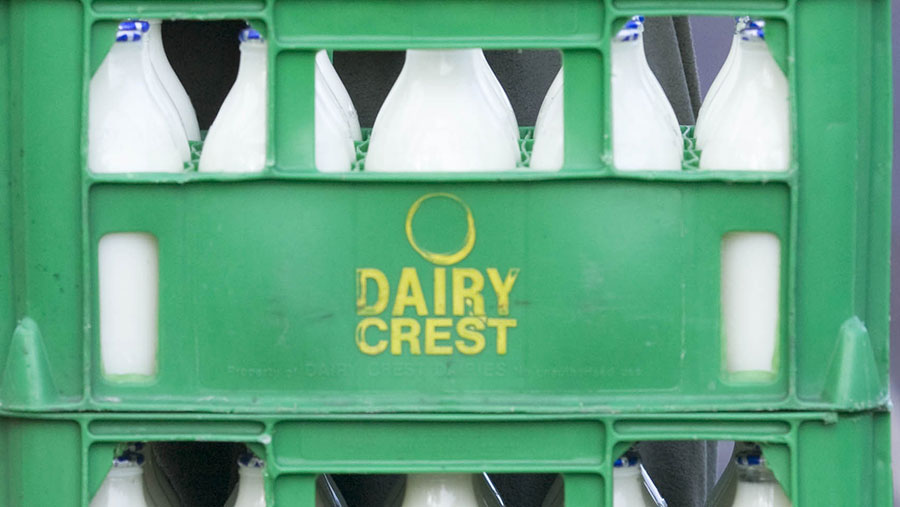New Dairy Crest milk contract: what producers need to know
 © Rex Shutterstock
© Rex Shutterstock Dairy Crest farmers have been presented with a new-style milk contract — now they have to decide whether to sign.
The Davidstow Balancing deal looks like the A and B systems introduced last year by processors including First Milk and Graham’s.
What do the 400 or so affected farmers need to know? Farmers Weekly has chased up further details.
What’s the new contract?
The Davidstow Balancing contract has been developed by Dairy Crest and producer organisation Dairy Crest Direct (DCD). Farmers who take it up will be paid a “core” price for most of their milk, at a rate negotiated by DCD. Any milk above a certain production threshold will be priced using a market indicator. In short, it’s Dairy Crest’s version of an A-B contract. It aims to better match supply and demand for the Davidstow cheese factory.
How big is each month’s core volume?
The core represents the milk requirements of Davidstow. The site needs roughly 500m litres of milk annually. Farmers supplying the plant produced 520m litres in 2015. This means the core has been set at about 96% of production in the same month the previous year.
See also: Dairy Crest farmers must sign new contract or face price drop
Will that volume change?
Yes, through negotiation with DCD. The core volume could go up four times over the year and DCD’s aim is to make it reach 100%. If the factory’s demand changes — if Dairy Crest lost a contract, for example — the core volume could also fall. But that can happen only once a year.
How are the prices worked out?
The core price will be worked out between Dairy Crest and DCD, as in the current set-up. The “reserve” rate for the extra milk will be the market indicator Actual Milk Price Equivalent (AMPE), published by AHDB Dairy, minus 2p/litre for transport and administration. Dairy Crest is holding the core price until 31 May, putting it at 22.72p/litre on a standard litre basis. The reserve price would have been 14p/litre for March.
What’s behind this new deal?
It’s linked to both Dairy Crest’s sale of its dairies division and the current market crisis. Dairy Crest will now have a firmer view of its milk needs at the Davidstow creamery, home of key brand Cathedral City. The industry downturn has forced all processors to better match supply and demand. Unexpectedly high milk supplies have to be balanced, meaning they need new customers or uses — which carries a cost. Dairy Crest head of procurement Ruth Askew says the old model was “not sustainable”.
Do farmers have to sign up?
It’s a voluntary decision. If they want to go ahead, farmers can sign up in March to start this April or in spring 2017. If they want to stay on the old contract, their whole milk price will continue to be negotiated between DCD and Dairy Crest. This rate will fall 0.8p/litre from 1 April to 21.92p/litre. DCD wants to get as many farmers signed up as possible.
“[The new contract] will add an element of transparency to the balancing costs,” DCD chairman Stephen Bone says.
